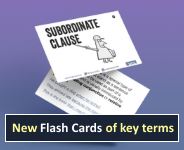Topic: Grammar and meaning
These resources consider how grammar is important in expressing certain types of meaning.
Englicious contains many resources for English language in schools, but the vast majority of them require you to register and log in first. For more information, see What is Englicious?

